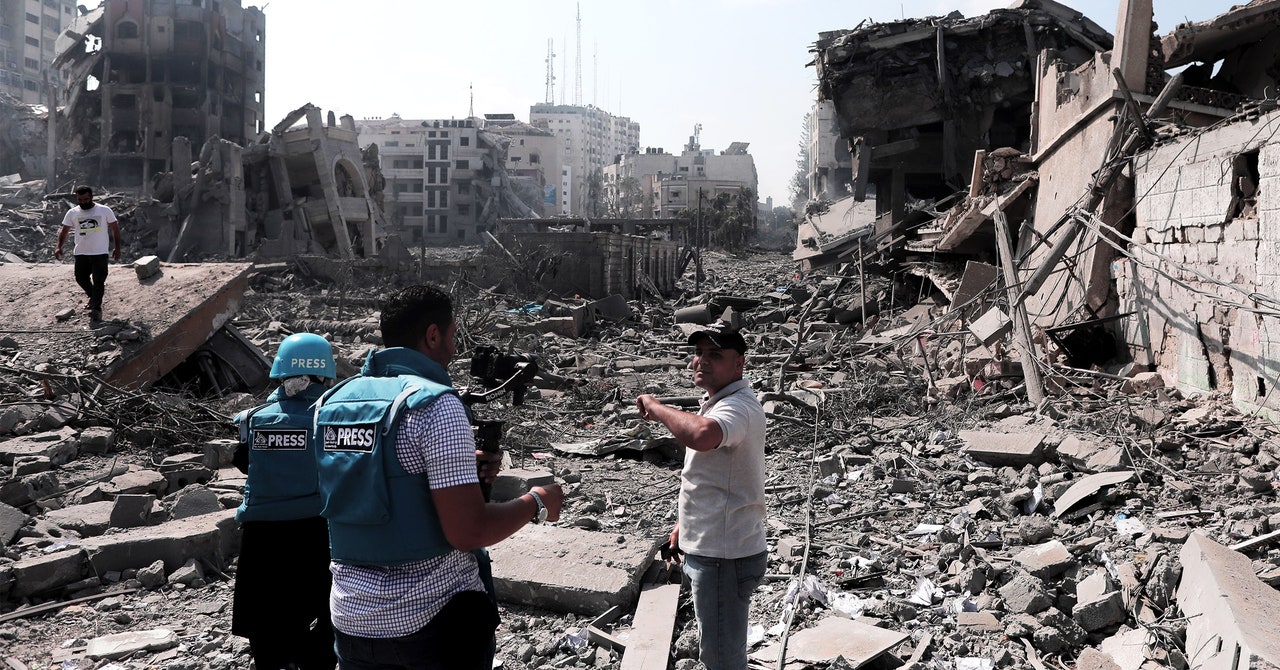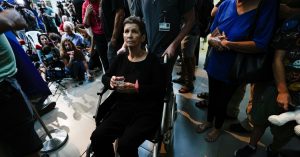
At least 24 journalists have died in the war between Israel and Hamas
The death of Roshdi Sarraj, the founder of Ain Media, underscores the risks facing journalists in the Gazan conflict with Israel and Hamas
The death of Sarraj and other colleagues underscore the risks facing journalists based in Gaza. Israel kept hitting the area after the Oct. 7 attack.
The latest tally is likely an undercount as the Committee to Protect Journalists is investigating more than 100 reports of dead or missing journalists. Among those cases are reports of damage done to journalists’ offices and homes, Westcott said.
The war is still going strong despite calls for a ceasefire by humanitarian groups and politicians, as Israeli forces prepare for an expected ground invasion of Gaza.
The press association said that targeting journalists was a violation of international human rights law. AMEJA requires swift, thorough and transparent investigations of the killings of our fellow journalists.
The foreign press associations called on Israel and Hamas to ensure the safety of their journalists in Gaza, who are reporting the news despite dangerous circumstances.
Most recently, CPJ updated its tally Wednesday to reflect the death of Mohammed Imad Labad, a journalist from the Al Resalah Foundation’s news website. He was killed in an airstrike in Gaza City.
On Monday, Palestinian journalist, filmmaker and Ain Media co-founder Roshdi Sarraj was killed in an Israeli airstrike in Gaza, according to his company.
Ain Media said in a statement that the death came five years after the killing of its co-founder, who was taken captive at the border of the Gaza Strip. After initially saying they would open an investigation into his death, Israeli officials later said Murtaja was a Hamas militant — a claim his family and colleagues have denied.
Ain Media lost part of its soul with the killing of Roshdi. In 2012 Yasser and Roshdi worked together to create a photo documentary about the daily life in the Gaza Strip. Gaza is a place where you can live. Roshdi and Yaser are life: they gave voice to the people of Gaza, to their smiles, to the stories locked in fear, to hopes cherished secretly from the oppression of the Israeli occupation,” the company said.
“Freelance local and photo journalists are particularly at risk, because they not only lack that traditional support of a newsroom, but because of the very nature of their work,” Westcott said. It’s necessary to get as close to the danger as possible in order to capture images and videos of the fighting.
Israeli officials have maintained that they don’t deliberately target civilians or journalists, and they respect press freedom. In the case of Abu Akleh’s death, the Israelis have acknowledged that Israeli gunfire probably killed the journalist, but they deny that soldiers were responsible for her death.
Israeli journalist Israel Frey went into hiding after “hundreds of right-wing people stormed my house and tried to hurt me and my children,” he said in a video he posted from hiding.
“Yes, I am afraid, but I won’t break,” Frey said in the video. I spoke about praying for Gaza’s children who are being slaughtered and they went after me.
Israel has passed new rules that allow them to shut down foreign media during a state of emergency if they think it damages national security.
“Journalists are themselves civilians in conflicts and they play a vital role in making sure that we can all understand what is going on,” Westcott said. All governments should try to do their best to protect journalists, that’s for sure. The authorities on all sides should publicly commit to recognizing and respecting that.”
The bombs rained down on Gaza for 19 hours. Wajeeh Abu Zarifeh, a journalist and manager of White Media, a reporting syndicate, had spent the first night of the war sheltering in his house, monitoring the news and trying to plot out the week’s coverage for his team of 15 journalists. On Sunday morning, he got to White Media’s office on Al Wehda Street and saw the building had been destroyed. The steel ridges were warped by the blast. Rubble spilled across the road, giving up plumes of dust. Office papers were strewn on the ground.
As far as Zarifeh was concerned the destruction of White Media’s office won’t make him stop covering the conflict in Gaza.

